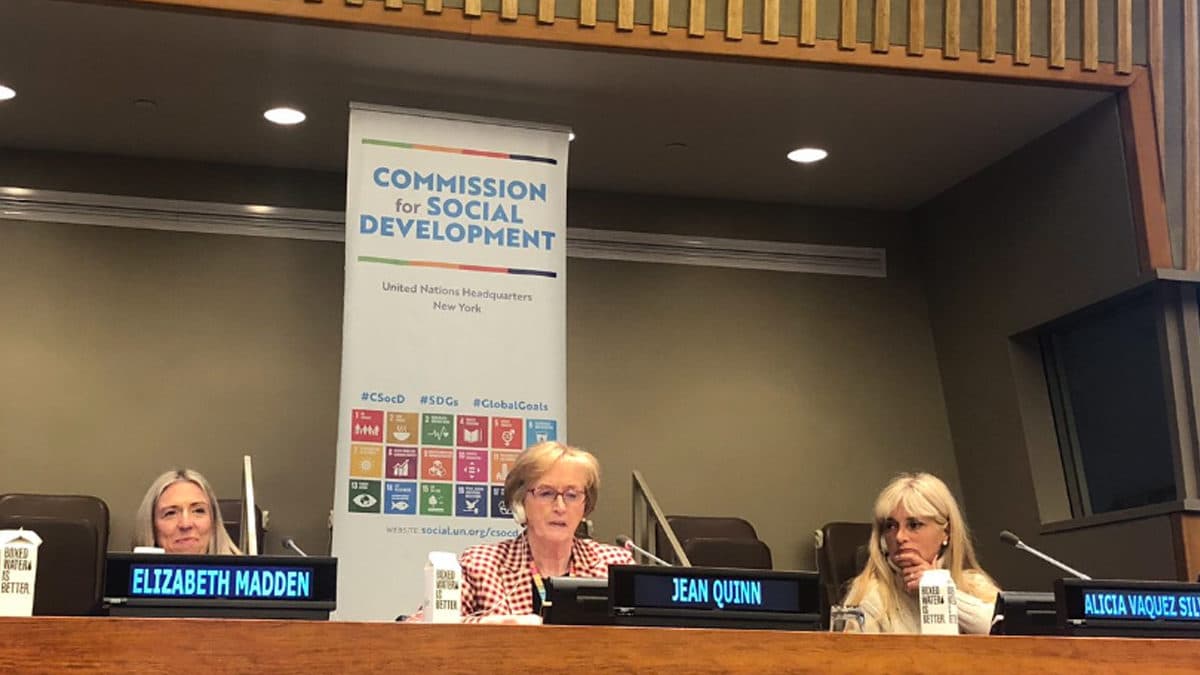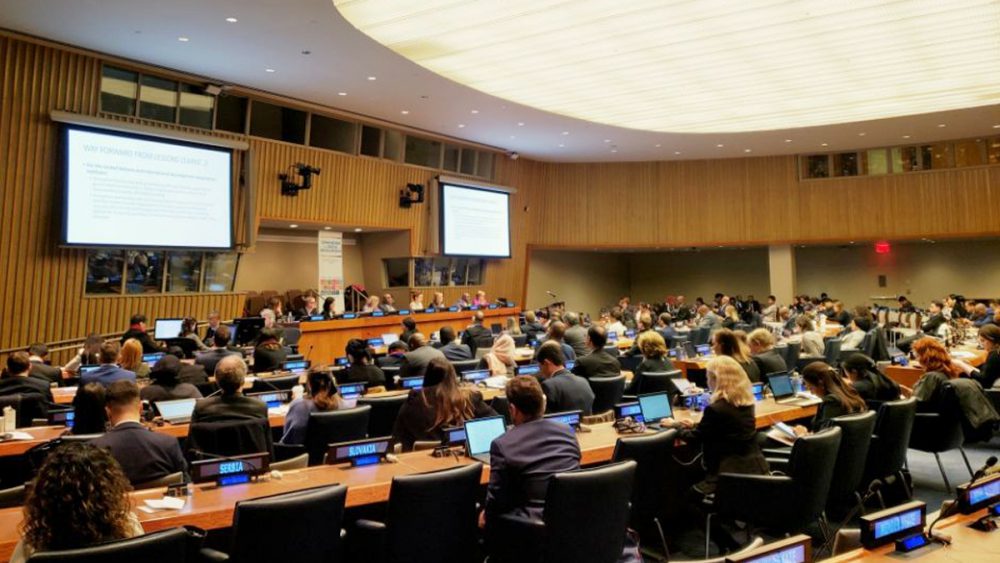
SR. Jean Quinn, Daughter of Wisdom speaks at the UN on Family Homelessness
A historic moment happened at the U.N. in February during the Commission on Social Development where Member States, Civil Society, Various Organizations and people who experienced homelessness gathered to address the issue of homelessness, social protection and affordable housing, resulting in a historic Resolution on homelessness. This was a welcome event and outcome for UNANIMA International whose current focus is on the issue of Family Homelessness.

UNANIMA International along with other NGOs took up the call to end homelessness for our advocacy at the United Nations in New York two years ago. Our efforts paid off in February 2019 when it was announced that the Priority Theme for 2020, the 58th Session of the Social Commission for Social Development was named as: “Affordable Housing and Social Protection Systems for all to Address Homelessness”. This was a landmark occasion as during its 75 years of existence, the UN had never addressed the issue of homelessness as a priority theme. It is great credit to the power of advocacy, collaboration and partnerships among NGOs, people who experience homelessness, Member States and the UN. We believe that we achieved the best outcome we could, considering the number of countries involved in the negotiations and the different realities they experience and recognize in terms of homelessness.
Throughout the commission the United Nations, Civil Society, Member States and UN collaborated on a vast array of events related to the priority theme. UNANIMA International, in partnership with the Irish Mission and a number of our Civil Society colleagues had the pleasure of hosting an event titled “Hidden Faces of Homelessness, From the Perspective of Women and Children” where we heard from former President of Ireland Mary McAleese, CEO of Sophia Housing, Ireland, a Lived Experience, our Research Fellow and the Special Rapporteur to the UN on Human Rights and Extreme Poverty. This was just one of the many fruitful events and discussions which contributed to the extensive dialogue on the theme, and without doubt contributed to what was documented in the final Resolution.
The resolution on the priority theme was a significant document to come from the commission. As Civil Society we were pleased to see a number of point we had advocated and pushed for throughout the commission, including but not limited to gender sensitive approaches, a push partnerships with civil society and the recognition that people with a lived experience should be included in all conversations. Importantly, the Resolution’s description of homelessness affirms a “working definition” that myself and other experts meeting in May 2019 in Nairobi, Kenya had put forth : Homelessness is ”a condition where a person or household lacks habitable space with security of tenure, rights and ability to enjoy social relations, including safety.” This definition being both inclusive in the types of homelessness it addresses, and holistic in the way it addresses the social, physical and security needs of the individual and/or family experiencing it.
At the Commission’s High Level opening discussion of the priority theme I (Sr Jean Quinn DW) was elected by civil society and the United Nations to speak as the Civil Society representative among the experts on the issue. During the session which can be found on United Nations TV I spoke on Family Homelessness and those left behind in our world especially women and children. I finished my address by echoing the voices of many experiencing homelessness globally and what we feel is the most important message for the UN to hear “Don’t talk about us, without us”.
Going forward along with our continued advocacy efforts at UNANIMA International, the working group on homelessness, which I have the pleasuring of co-chairing is working on advocacy and increasing awareness about the linkages of homelessness to the Sustainable Development Goals. Furthermore we will be continuing to urge Member States to consider and reaffirm that adequate housing is a basic human right, in accordance with article 25 of the Universal Declaration of Human Rights.